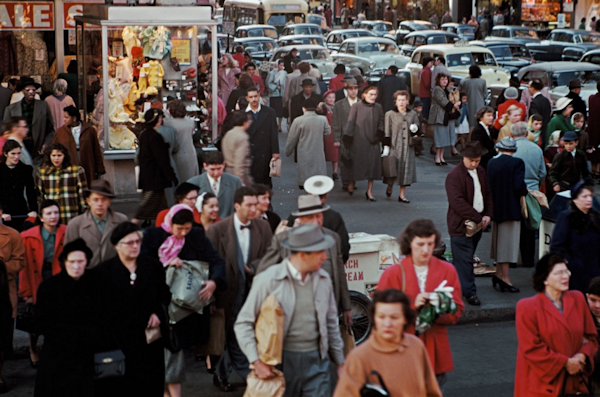Part of the Answer is 'Forcing Down Crime'
The Old New York Won’t Come Back

‘The pandemic changed everything,’ we say.
But we have yet to absorb fully everything that means.
It will be decades before we fully appreciate what the pandemic did to us, and I
mean our entire society—our culture, power structures, social ways, economic
realities.
Look at the cities. I’m not sure we see the implications of what has happened
there. In New York we are witnessing, for the first time in a century and a
half, the collapse of the commuter model.
In the past year the owners of great businesses found how much can be done
remotely. They hadn’t known that! They hadn’t had to find out. They don’t have
to pay that killer rent for office space anymore. People think it will all snap
back when the pandemic is fully over but no, a human habit broke; a new way of
operating has begun.
&uuid=(email))
The closed shops in and around train stations and office buildings, they’re not
coming back. The empty towers—people say, “Oh, they can become luxury
apartments!’ Really? Why would people clamor for them. Many of the things that
made Manhattan glamorous—shows, restaurants, clubs, museums, the opera—are
wobbling.
A lot of cities, not only New York, are going to have to reinvent themselves,
digging down and finding newer purposes, their deepest value. They’re going to
have to take stock in a new way: New York has the greatest hospitals,
universities, the media, parks. What else?
Public spending is skyrocketing due to greater need; the city and state budget
deficits are through the roof. New York is Democratic and public sentiment will
be for tax increases, big ones.
Here are some
numbers from the Partnership for New York City, a business group. The
city has lost 500,000 private-sector jobs since March, 2020. Tens of
thousands of small businesses, and 5,000 restaurants, have closed. Less than 15%
of office workers are back in the workplace they left a year ago.
Tourism, an approximately $70 billion industry, won’t be back until
theater is back. When? Judith Miller had a good
piece in City Journal on how Broadway’s older houses can’t be retrofitted
for social distancing and still make a profit. Show folk will tell you: A lot
will depend on what the unions allow. Can they be nimble and farsighted? Or will
they think everything is just an unending 2019?
The Partnership for New York City reports 300,000 residents of high-income
neighborhoods have filed change-of-address forms with the U.S. Postal
Service. You know where they are going: to lower-tax and no-income-tax states,
those that have a friendlier attitude toward money making and that presumably
aren’t going hard-left. Florida has gotten so cheeky that this month its
chief financial officer sent a letter inviting the New York Stock Exchange to
relocate to Miami.
In the short term, New York needs to hold on to the wealthy—the top 5% percent
in New York pay 62% of state income taxes—and force
down crime. But if you tax them higher for the privilege of being
attacked on the street by a homeless man in a psychotic episode, they will
leave. Because, you know, they’re human.
Never have we needed visionaries more than now—people in politics, and out, who
have an outsize creativity and a deep knowledge of human beings, who can come up
with reasons people want to be here, have to be here, would be happy nowhere
else.
wsj.com